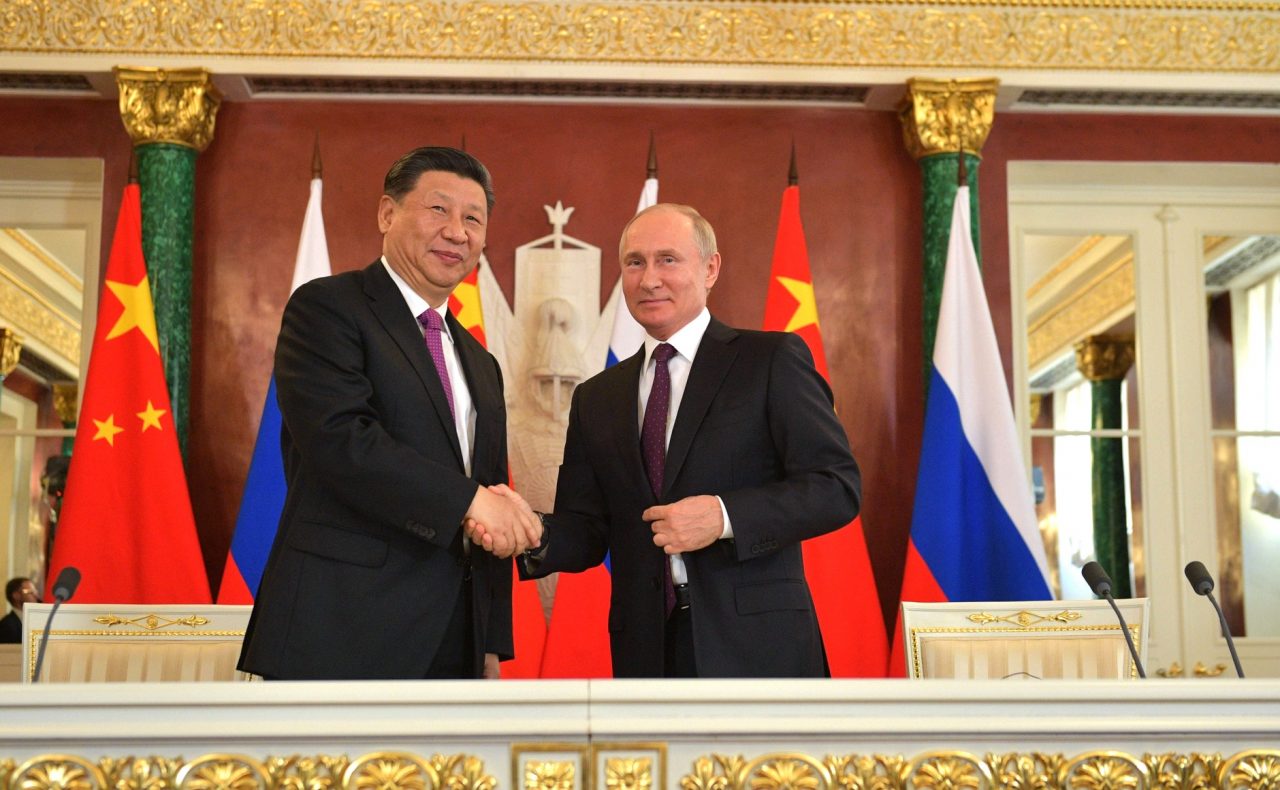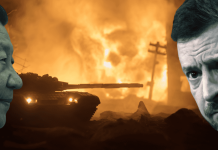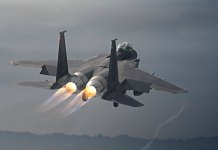The first talks between Ukraine and Russia took place in the early days of Russian invasion. The delegations had met in Belarus and then in March 2022 in Istanbul; both met with failure. In 2022 and 2023, separate peace initiatives were announced by China, the Vatican, and a group of African countries, but to no avail. In September 2022, Zelensky signed a decree banning any talks with Putin.
Way back in January 2014, Peaceful Change Initiative, a UK-based organization, published an 8-page working paper titled “Ukraine: A peace-building agenda to bridge the divide.”
The paper carried out an in-depth study of complicated relations between the Russian Federation and the neighboring state of Ukraine. The document identified eleven points as prerequisites to a final blueprint of peace. At that time, the war had not begun, but indications of an escalation of tensions over the dispute could be anticipated.
On 15 May, Aljazeera reported that President Putin had signaled approval of China’s plan as a “genuine desire” to end the war in Ukraine as he traveled to Beijing to shore up support from his vital international partner. In an interview with Xinhua ahead of his visit, Putin said that Beijing had truly understood the conflict’s “root causes” and its “global geopolitical meaning.”
China’s twelve-point peace plan was made public last year, but it received only a lukewarm response. However, during the visit of German Chancellor Olaf Scholz, President Xi spoke of additional principles, calling for a “cooling down” of the situation, conditions for restoring peace, creating stability, and minimizing the effects on the world economy.
Putin hailed additional measures as “realistic and constructive steps” that developed the idea of the necessity to overcome the Cold War mentality.”
But Ukrainian presidential adviser Mykhailo Podolyak dismissed President Putin’s comments on possible negotiations over the war as “hypocritical.”
Switzerland Peace Summit
Put succinctly, the Russian view of the conflict is a struggle pitting it against a “collective West” that took no account of its security concerns by promoting the eastward expansion of NATO and military activity close to its borders. On the other hand, Ukrainian President Zelensky’s peace plan calls for a withdrawal of Russian troops, the restoration of its 1991 post-Soviet borders, and bringing Russia to account for its actions.
There is a big gap between the respective positions that have developed in a world of geopolitical strategies.
Ukraine and Switzerland have initiated the first peace summit to be held on June 15-16 in the Swiss resort of Burgenstock. It is learnt that 107 countries and international organizations have confirmed their participation in the summit.
While the United States representative will participate in the event, several countries have refused to be represented at the peace summit, and China is unlikely to send any representatives.
The refusal by many countries, including China, triggers a debate on the expediency of the summit. The controversy has intensified because Russia has not been invited to the summit. It looks ludicrous to call a summit without inviting the prime actor in the conflict as a participant to put their view before the summit.
The US Blows Hot & Cold
Answering journalists’ questions about whether Washington shares Ukraine’s concerns about China’s absence at the summit, Mathew Miller, the US State Department spokesman, said that the United States does not currently see how China can play a positive role in resolving the war. According to the spokesman, China could always play a positive role if it wanted to.
The spokesman went on to say that China cannot play a constructive role given the action China has taken over the recent months “to rebuild, reconstitute Russia’s industrial base.”
In a broadcast on April 12 this year, Kylie Atwood of CNN said that China is helping Russia ramp up its defense industrial base at such a large scale that Moscow is now undertaking its most ambitious expansion in military manufacturing since the Soviet era as it continues its war against Ukraine.

It added that China’s support includes significant quantities of machine tools, drones, turbojet engines, cruise missile technology, microelectronics, and nitrocellulose, which Russia uses to make propellants for weapons.
President Biden raised these and other concerns during a phone call, and the Secretary of State also raised the issue during his recent visit to Europe. The point of opening intelligence reports is to explore the bottom of the Chinese claim that it is neutral in the Ukrainian war.
However, despite China’s role in the Ukrainian war, Washington likes to remain engaged in a dialogue with Beijing about its dissatisfaction with such action.
What To Expect From Swiss Summit
Zelensky hopes to put the case of Russian invasion — which is about to enter the third year —– before the international community. He is also expected to place on the table his unilateral peace proposal to put the war to an end.
It may also try to find a way for Russia’s meaningful participation at a proper time. Russia has dismissed the peace initiative as a waste of time. Perhaps the reason is that the conditions laid down by Zelensky already stand rejected by Russia.
President Biden, au deputes the Vice President to represent the US. China has declined to attend the meeting for two reasons. One is that President Xi’s peace formula has been declared by the Ukraine as Russian “hypocrisy.”
Secondly, Xi sees no sense in calling the summit to which Russia is not invited. Kremlin spokesman Dmitry Peskov said that the summit would be “absolutely futile” without Russia’s participation.
Kyiv did not invite Russia to participate in the summit because it does not trust Moscow. However, Kyiv believes Moscow could be invited to a future summit to discuss an end to its invasion, but on Kyiv’s terms.
To sum up, the summit may prioritize three key themes: food security, nuclear safety, and the release of all prisoners and deportees. But will the resolution of the prioritized items help bring an end to the fighting in Ukraine? That is a moot point.
The last word about the Switzerland summit would be that of playing Hamlet without the Prince of Denmark.
- Prof. KN Pandita (Padma Shri) is the former director of the Center of Central Asian Studies at Kashmir University.
- This article contains the author’s personal views and does not represent EurAsian Times’ policies/views/opinions in any way.
- The author can be reached at knp627 (at) gmail.com




